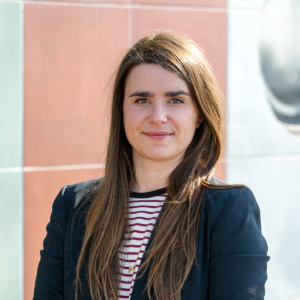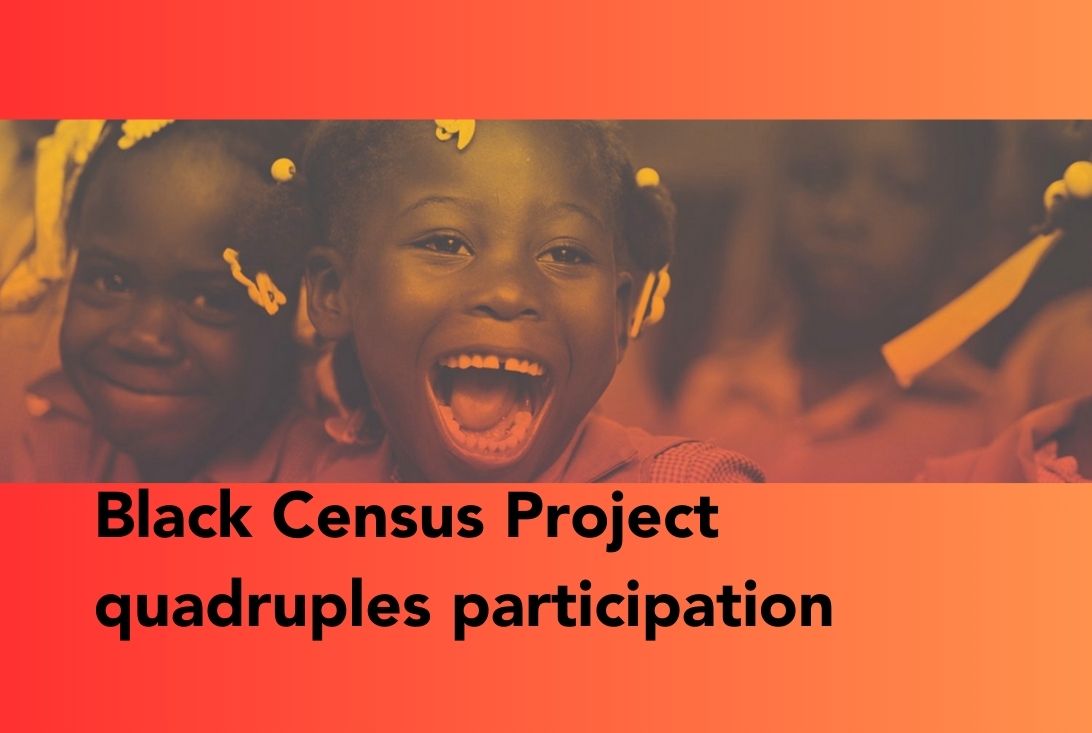Closing Out Black August
Just in time for the close of Black August, Black Futures Lab announced a historic milestone for the Black Census Project: the most extensive survey of Black people in the United States has gathered nearly 130,000 responses from across all 50 states, a number four times bigger than the inaugural 2018 Black Census.
The data collected provide an essential, detailed, and uniquely nuanced view of what Black people in the U.S. care about, what our hopes and dreams are, and what solutions we need to see from politicians who expect Black voters to come out on Election Day.
Alicia Garza, Founder and Principal of Black Futures Lab, recently explained how the Black Census Project will translate to building Black political power: “Every day, policy is made about us without us. We launched the Black Census to transform that–we take the data from the Black Census and use it to inform a Black agenda that serves as a roadmap for policymakers and politicians on how to best address the needs of Black communities.”
More on the Black Census Project at Afro News, Minnesota Spokesman-Recorder, Diverse: Issues in Higher Education, the Cincinnati Herald, the San Diego Voice and Viewpoint, and New York Amsterdam News.
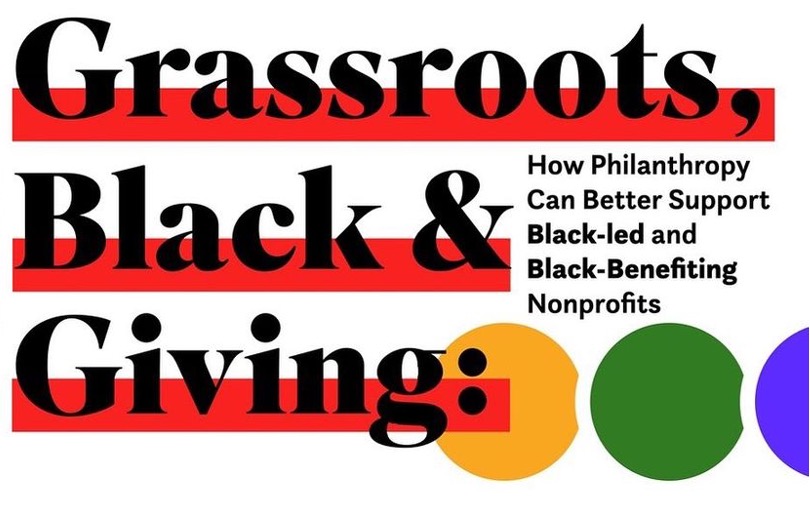
As a follow up to the annual Give 8/28 day, which culminates Black Philanthropy Month as the only day dedicated to promoting financial support for Black-led and Black-benefiting grassroots organizations, Young, Black & Giving Back Institute (YBGB) released a report calling on philanthropy to do more to help these organizations survive and fulfill their missions. The report, “Grassroots, Black & Giving: How Philanthropy Can Better Support Black-led and Black-Benefiting Nonprofits,” surveyed 227 leaders of Black-serving and Black-led organizations about their challenges and offers recommendations to the philanthropic sector on how to help these organizations that are closest to the communities they serve so they can continue to do important work. According to Ebonie Johnson Cooper, Founder and Executive Director of YBGB, if funders’ are “truly focused on the challenges that exist within the Black community, then this report should be a resource and a tool.”
Read this Philanthropy News Digest interview with Ebonie to learn more about the report, and check out more coverage in the Chronicle of Philanthropy, Yahoo! Finance, MarketWatch, Black Enterprise, Shelby County Reporter, Natchez Democrat, Magnolia State Live, The Vicksburg Post, Port Arthur News, LaGrange Daily News, American Press, The State Journal, Picayune Item, Alexander City Outlook, Daily Leader, and L’Observateur.
Nonprofit leaders say funding for women and girls often falls short due to its overreliance on patriarchal power and a “white savior” mindset. Black women are at the forefront of many social justice causes and movements today, and their scarce funding in particular often comes with conditions not faced by their white counterparts. Lauren Braithwaite digs into the disparity in funding for nonprofits led by and serving women and girls, and how feminist philanthropy aims to challenge that status quo, in a new article for Philanthropy News Digest. She spoke with Groundswell Fund Executive Director Yamani Yansá Hernandez who explains that “feminist philanthropy is the redistribution of wealth with trust in the leadership and strategy of those most marginalized, women and gender-expansive people of color.”
A 2021 report concluded that relief efforts made available by Bay Area grantmakers to nonprofits during the pandemic could have been more effective and equitable if the grant application process was simplified and streamlined. In response to the data, the Zellerbach Family Foundation, Fleishhacker Foundation, and Kenneth Rainin Foundation developed a “Common App for the Arts.” The standardized application enables Bay Area artists, arts organizations, and fiscally sponsored projects to apply for grants at all three foundations. In early feedback on the first cycle of the Common App, launched in June 2023, applicants are “simply expressing appreciation for their calls to action being heard and that funders are coming together to make things more efficient and simpler for grantseekers.” More at Inside Philanthropy.
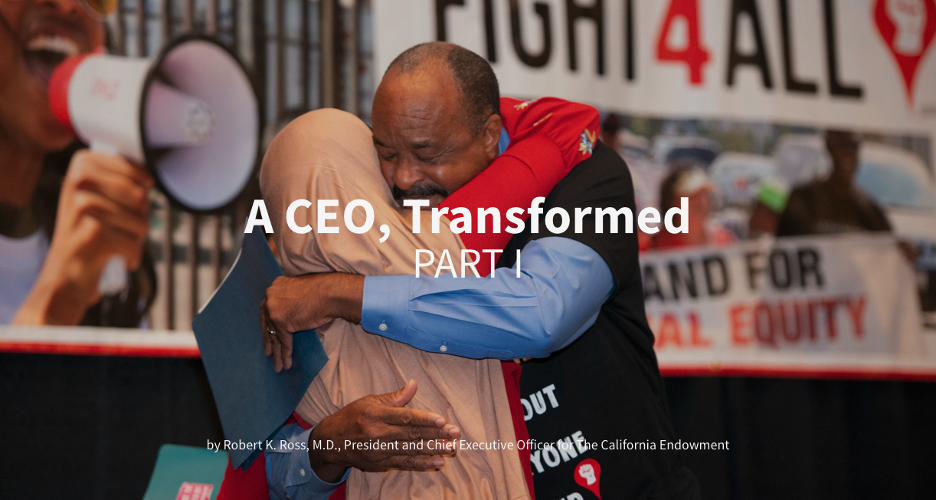
In 2024, Dr. Robert K. Ross will step down as president and CEO of The California Endowment. Since he joined in 2000, The Endowment has transformed from a funder focused on services and charity to one that abundantly resources advocacy and activism, transforming Dr. Ross in kind. Dr. Ross reflects on what leadership could look like at the nexus of philanthropy, social and racial justice in a two part series for the Chronicle of Philanthropy. Read part one now.

In March, the California Grassroots Democracy Coalition—an association comprising 140+ grassroots organizations committed to empowering disenfranchised and disadvantaged communities in California through reform and activism—began an unprecedented campaign to increase voting to reflect the state’s diverse population. The center of the campaign is SB 299, a bill introduced by Senator Monique Limón (D-Santa Barbara) that would ensure complete voter registration for California residents by using people’s interaction with a state agency such as the DMV or Medicaid to automatically register them if qualified. Read more about the campaign, SB 299, and a national trend in updating and automating Motor Voter laws across the U.S., in the Davis Vanguard and the Santa Barbara Independent.
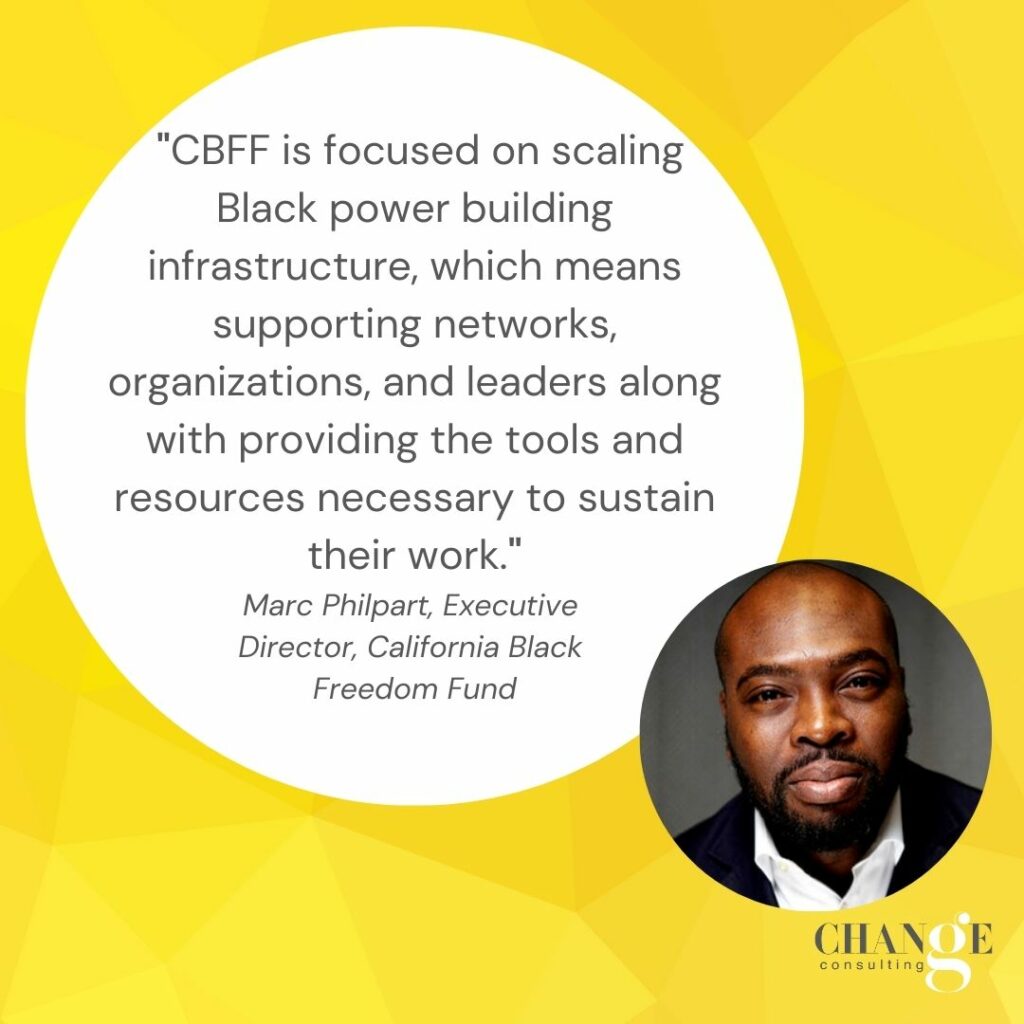
Marc Philpart was named executive director of the California Black Freedom Fund (CBFF) after more than a decade of leadership in advocacy and working with grassroots organizations to build power for racial justice. Marc’s campaign and policy expertise extends to issues including public health and violence prevention, police and prison abolition, education, the criminalization of youth, economic equity, poverty eradication, and voting and civic engagement. Marc recently spoke with Philanthropy News Digest about the needs of Black-led organizations, how sustained multi-year funding plays a part, and what philanthropy needs to consider when working with the Black community. Read the feature here.
ICYMI
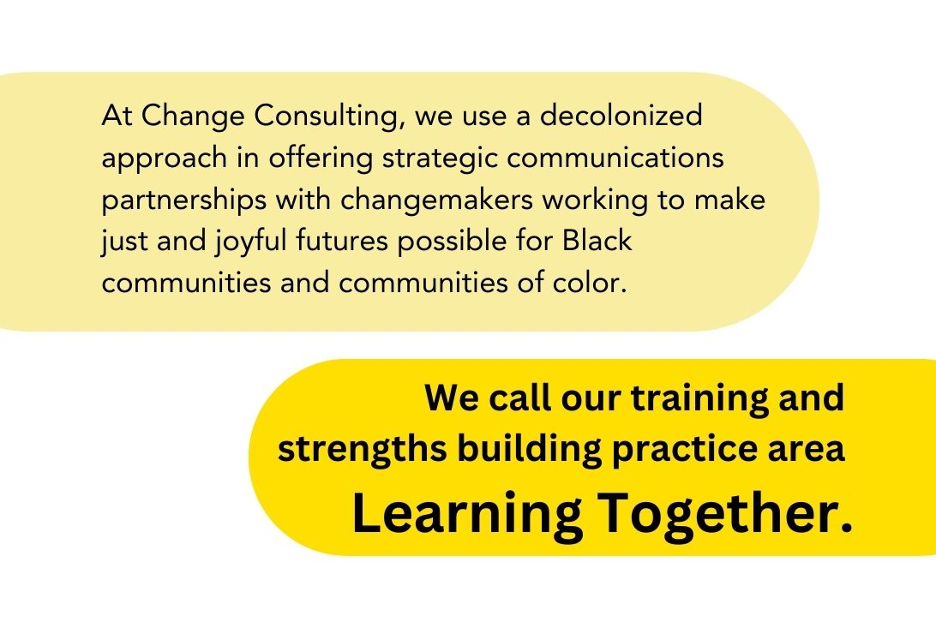
We are inspired by the growing choir of Black experts and experts of color who are questioning the underlying assumptions of the term “capacity building” and calling for a paradigm shift for how social justice organizations strengthen their ability to advance their mission now and into the future. Anna Ghosh, Vice President of Learning, and Bilen Mesfin Packwood, our CEO, explain how we are shifting our training and facilitating work from capacity building to strengths-building and “learning together” in a new blog. Check out our Learning Hub for a tipsheet on how to incorporate these considerations into your work.
